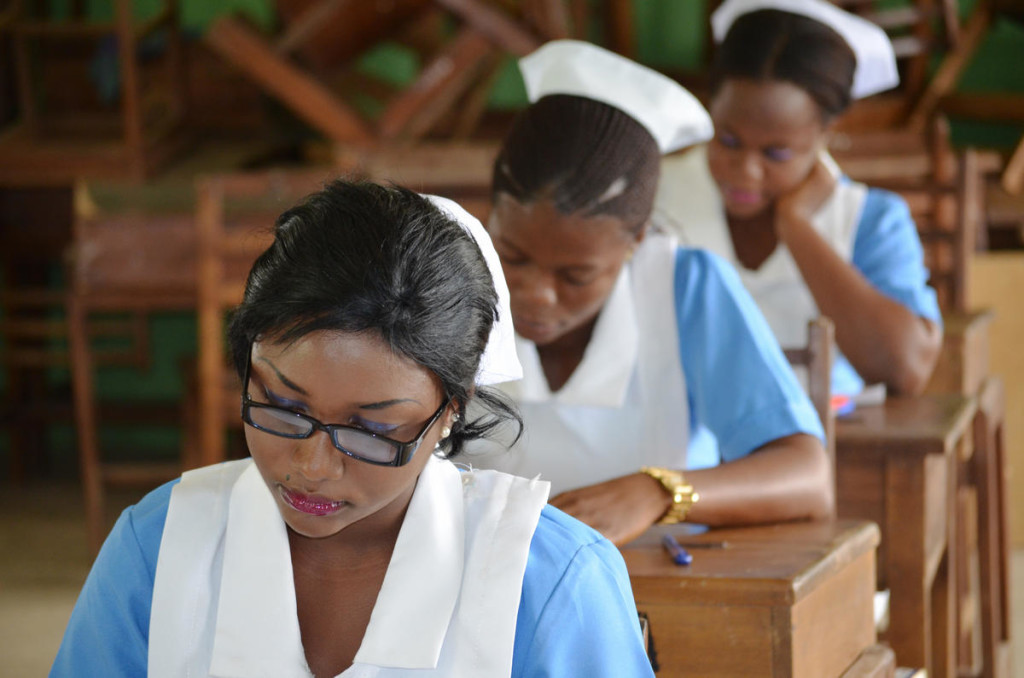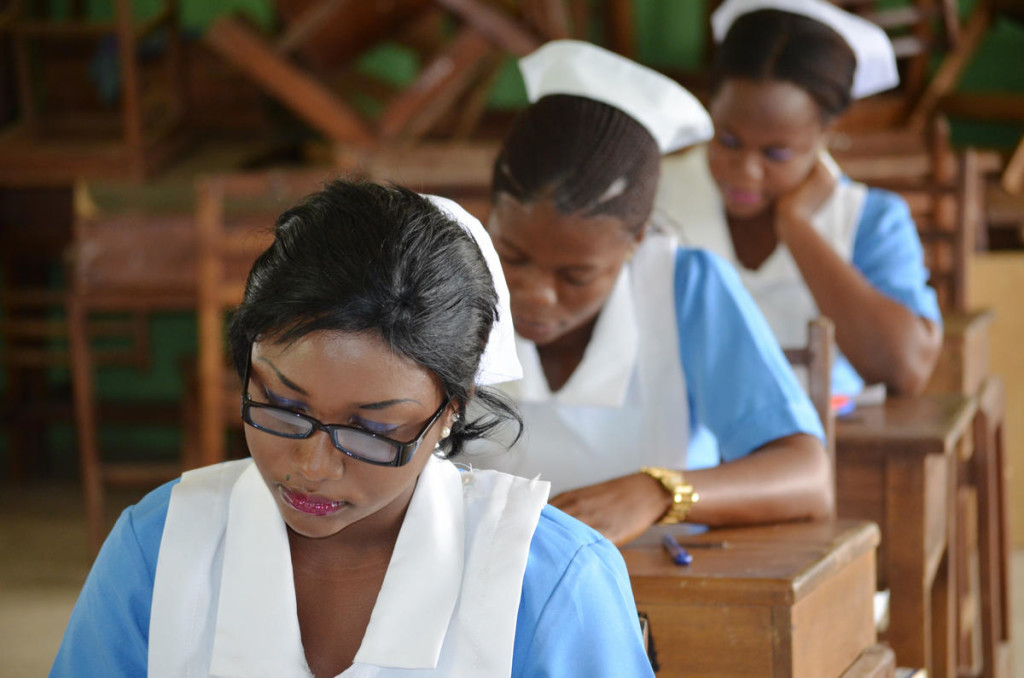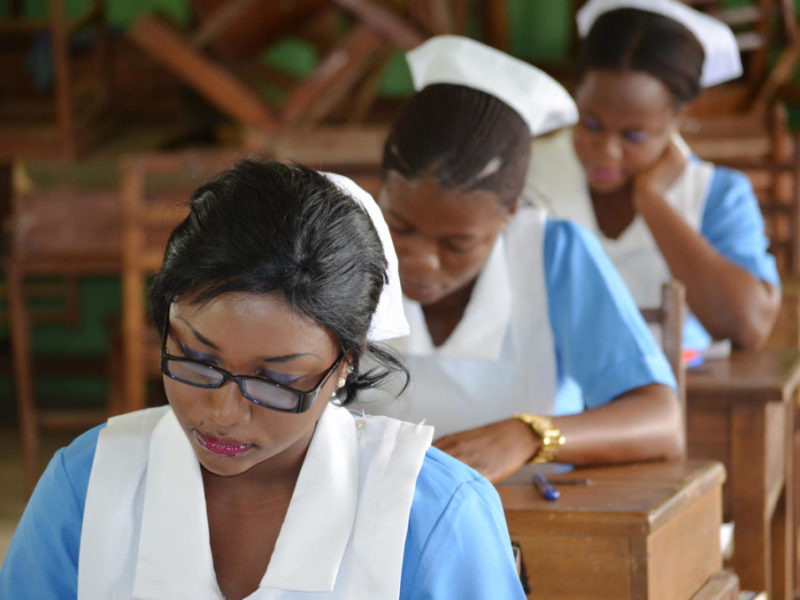Many of the tools, resources and online classes created by the Johns Hopkins Center for Communication Programs will soon have new life as continuing education courses for frontline health workers in more than 40 low- and-middle income countries around the world.
The materials will be offered as part of a project by the World Continuing Education Alliance (WCEA), which this year launched a mobile app to enable more nurses, midwives, doctors and other health care workers throughout sub-Saharan Africa and elsewhere to get continuing medical education credits required as part of their professional certification.

Nurses earn their credentials in classrooms, but a new app will help them get required continuing medical education credits online.
“We have long wanted to get our really valuable content to more health care providers who need it, content that has already been developed and tested by our team,” says Susan Krenn, CCP’s executive director. “Through this new app, we can efficiently reach many more people – people we wouldn’t otherwise be able to reach – and in a very structured manner.”
WCEA got in touch with CCP when it was looking for materials to use to teach medical professionals about COVID-19, says Craig Fitzpatrick, who is leading the project for WCEA. But once the two organizations got to talking, they realized that CCP had much more than that to offer.
The idea is to repurpose quality content and make it available to 170,000 frontline health workers via WCEA’s mobile app and e-learning platforms, which launched in late January.
CCP is sharing existing classes on malaria from its recent VectorWorks project and components of content on immunizations that CCP developed for UNICEF. The center also hopes to repurpose modules on nutrition, family planning, HIV and dozens more designed for USAID’s Global Health eLearning platform, which was managed by CCP until this year. CCP also has other materials on a wide number of topics that can be easily adapted into a course format.
In just six months, WCEA’s users have already completed more than 630,000 courses on the new app. WCEA has partnerships with ministries of health, nursing, midwifery and medical councils and other professional associations to build capacity in continuing education using technology. Nearly two dozen countries are already online, with their health care workers taking 5,000 to 6,000 courses a day.
The courses are designed to use as little data as possible, as mobile rates can be high in some low-resource countries. They can also be taken offline.
“There is a huge need in low-and-middle income countries,” says Graham Hellier, the founder of WCEA. “The individual health care workers, especially those in rural and remote regions, have struggled to access sufficient education for medical re-licensure. In order to meet that demand, we decided to provide the platform for free.”
WCEA is financed by sponsors as well as a very small retail operation in countries such as Australia, New Zealand and Canada where professionals pay for the content.
The relationship between the two organizations already feels like a great fit, says CCP’s Heather Hancock.
“We benefit because we’ve been trying to work that content into professional associations but it is so hard to break in, extending our reach to doctors and nurses and midwives in a way we haven’t in the past,” she says. “At the same time, WCEA has all those relationships but doesn’t necessarily have the content. This solves both issues.”



